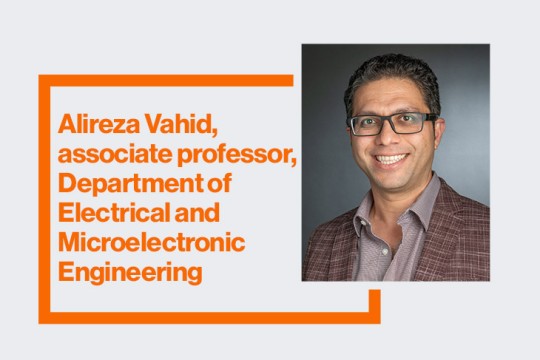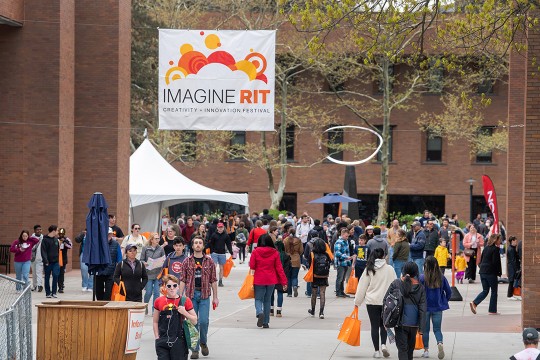Interdisciplinary Collaborations


Interdisciplinary Collaborations
Breadcrumb
- RIT/
- Interdisciplinary Collaborations
It’s fun to create the impossible. And through inventive interdisciplinary collaborations, that’s exactly what’s happening at RIT.
We’re identifying unknown planets, creating novel ways to solve environmental problems, inventing health care technologies that are altering patients’ quality of life, and providing the resources and funding for our brightest minds in the sciences, business, engineering, humanities, computing, and more, to explore, research, and develop—all with the goal of pioneering technological, environmental, and humanistic advances.
Solution-Driven Learning
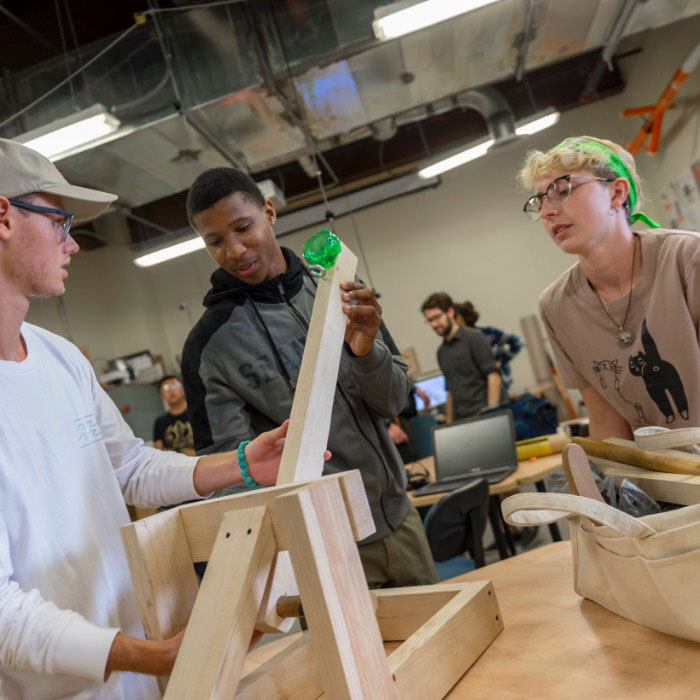
Grand Challenge Scholars Program
RIT is one of 75 schools in the world participating in the National Academy of Engineering’s Grand Challenge Scholars Program. Led by faculty from Kate Gleason College of Engineering and the College of Liberal Arts, students and faculty from majors throughout RIT are invited to collaborate in addressing 14 significant challenges that, if solved through collaboration between individuals in science, engineering, the arts, and the liberal arts, could positively impact complex societal issues such as improving urban infrastructure, making solar energy economical, securing cyberspace, improving access to clean water, and engineering better medicines. The program begins with an introductory course that initiates students to the objectives of the program as well as program activities that range from research and interdisciplinary course work to global, service, and entrepreneurial experiences.
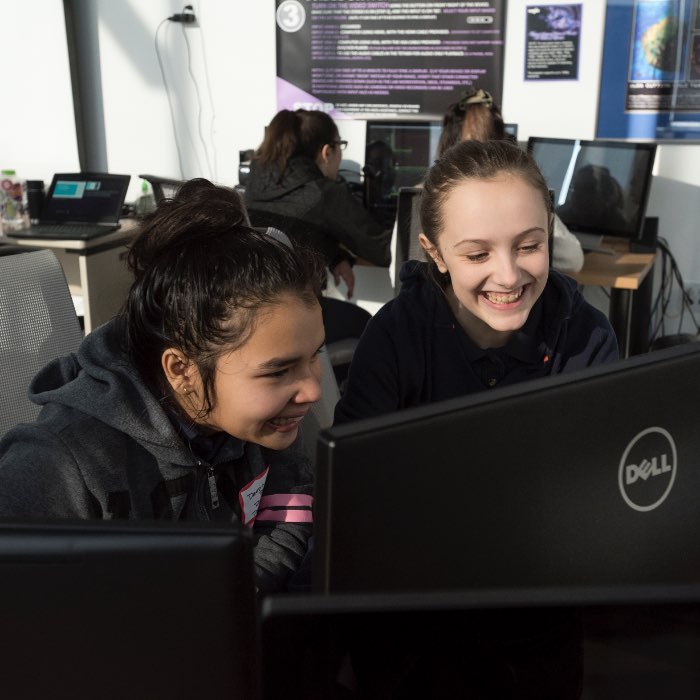
Computing for All
To better prepare students for careers that are continuously shaped by computing, Golisano College of Computing and Information Sciences established the Computing for All initiative. With an aim to spark an understanding of the impact computing has in all disciplines, the initiative helps students make connections between computing and their career interests and aspirations. The initiative offers students varying levels of computing knowledge with classes tailored to the particular makeup of students in that class. For example, liberal arts students may learn how to write an app that analyzes political tweets, science students may develop a database to find patterns in DNA, and art and design students can develop a program that allows them to modify colors in a photo. Computing for All includes a community outreach component with libraries and schools, and research is being done to change the way computing is taught in K-12 and college.
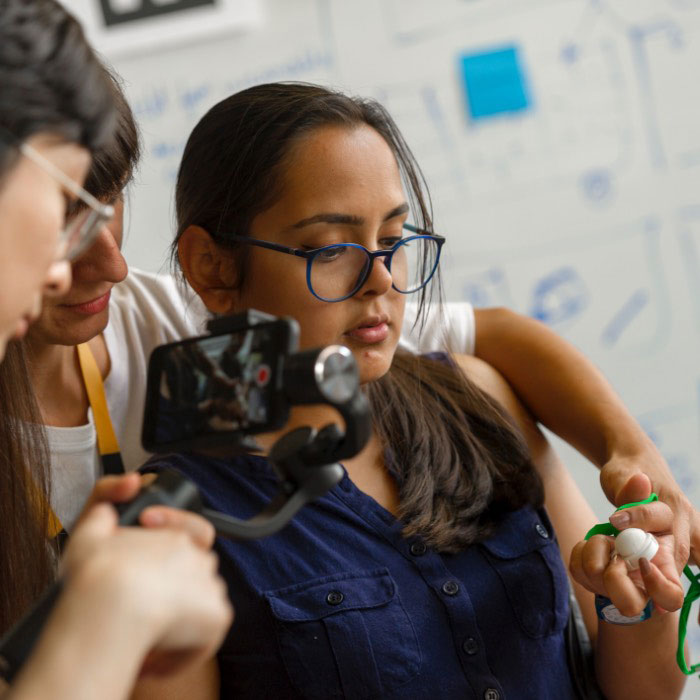
Studio 930 RIT Design Consultancy
The Studio 930 RIT Design Consultancy is a multidisciplinary studio focused on the production of access and health technologies products to help people with differing abilities. The studio is a collaborative effort between the Simone Center for Innovation and Entrepreneurship, Kate Gleason College of Engineering, Saunders College of Business, and the industrial design program in the College of Art and Design. Studio 930 gives students from a range of majors the opportunity to design products meant to assist those with differing abilities or health, and to bring those products to the real world through business planning and commercialization. Numerous unique and innovative products have already been developed by RIT students, such as a secure sling to lift individuals, a haptic-feedback rock climbing wall for children with attention disorders, and an automated toilet paper dispenser for individuals with mobility or behavioral issues.
Collaborative Educational Initiatives
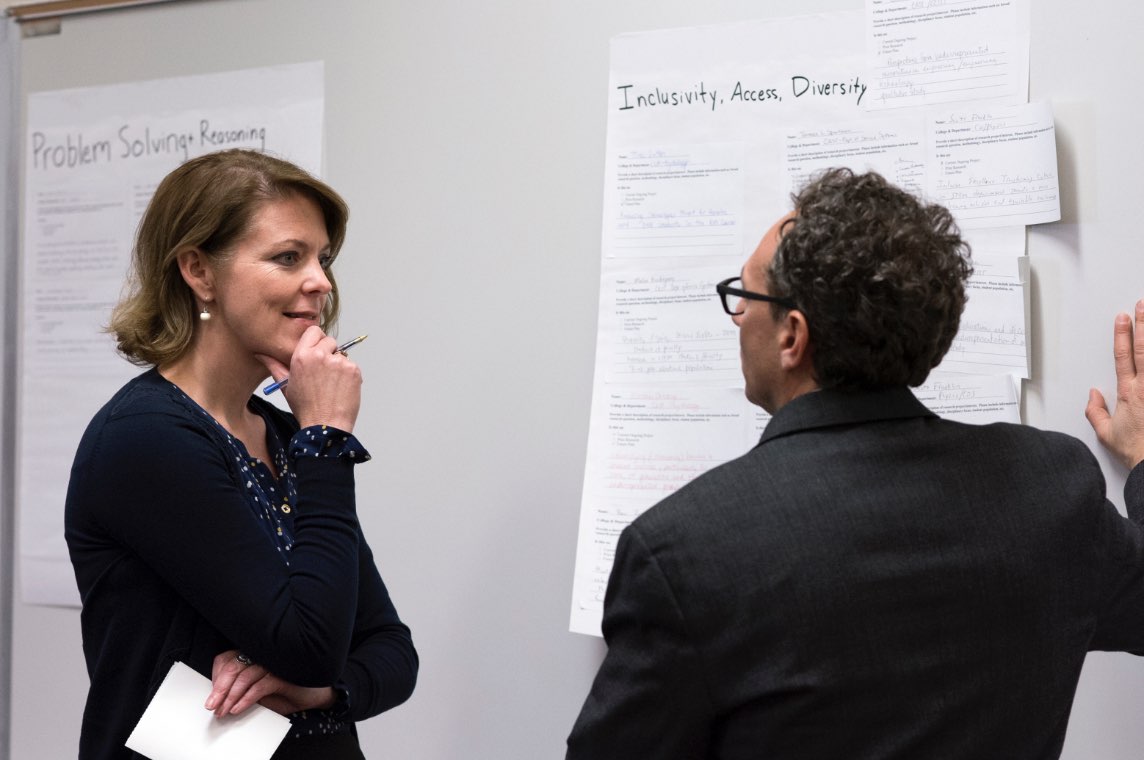
Interdisciplinary STEM Ed Research Forum (ISERF)
ISERF is a collaboration of STEM education research groups across RIT that contribute ideas and further research goals. The forum welcomes attendees and research presenters from all RIT colleges, schools, and programs. It also offers opportunities to discuss and form partnerships in education research.
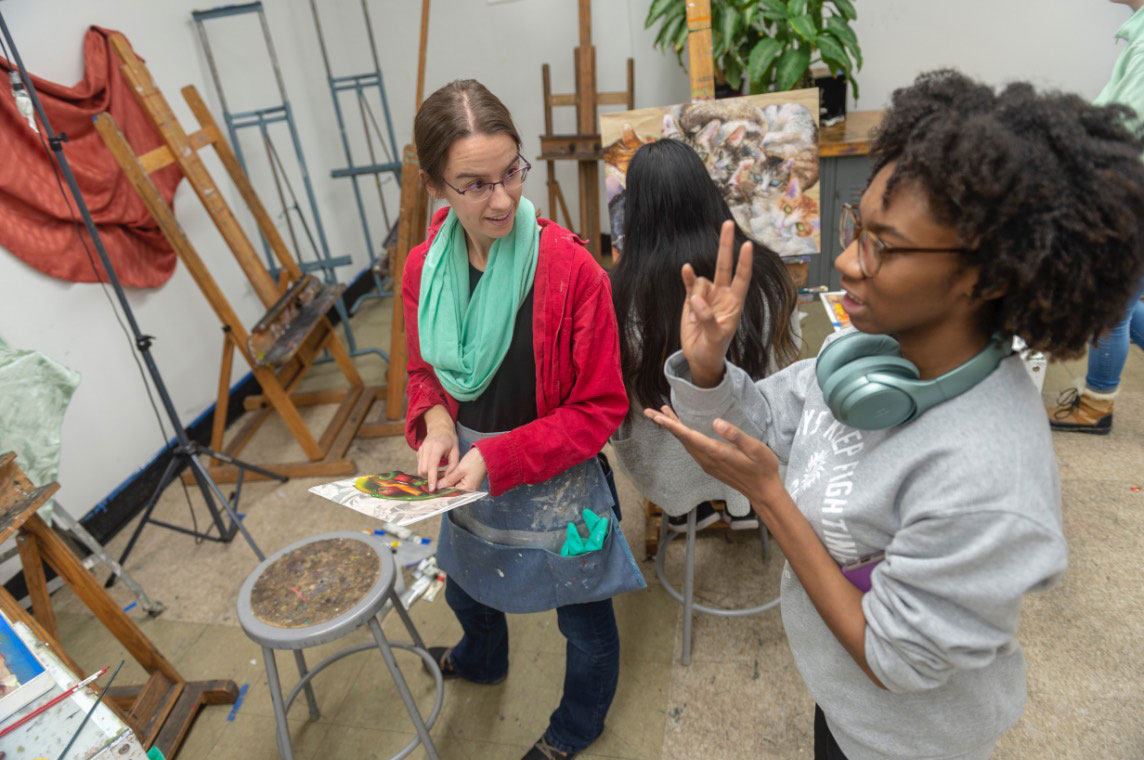
National Technical Institute for the Deaf (NTID)
NTID is the world’s first and largest technological college for deaf and hard-of-hearing students. Since 1968, NTID has offered an array of academic programs taught by faculty and staff who specialize in teaching deaf and hard-of-hearing students. More than 1,100 deaf or hard-of-hearing students are enrolled in associate or bachelor’s degrees at NTID, and more than 560 deaf or hard-of-hearing students are enrolled in degree programs in RIT’s other colleges. All students receive educational support services, which include in-class ASL interpreters, notetaking, and real-time captioning.
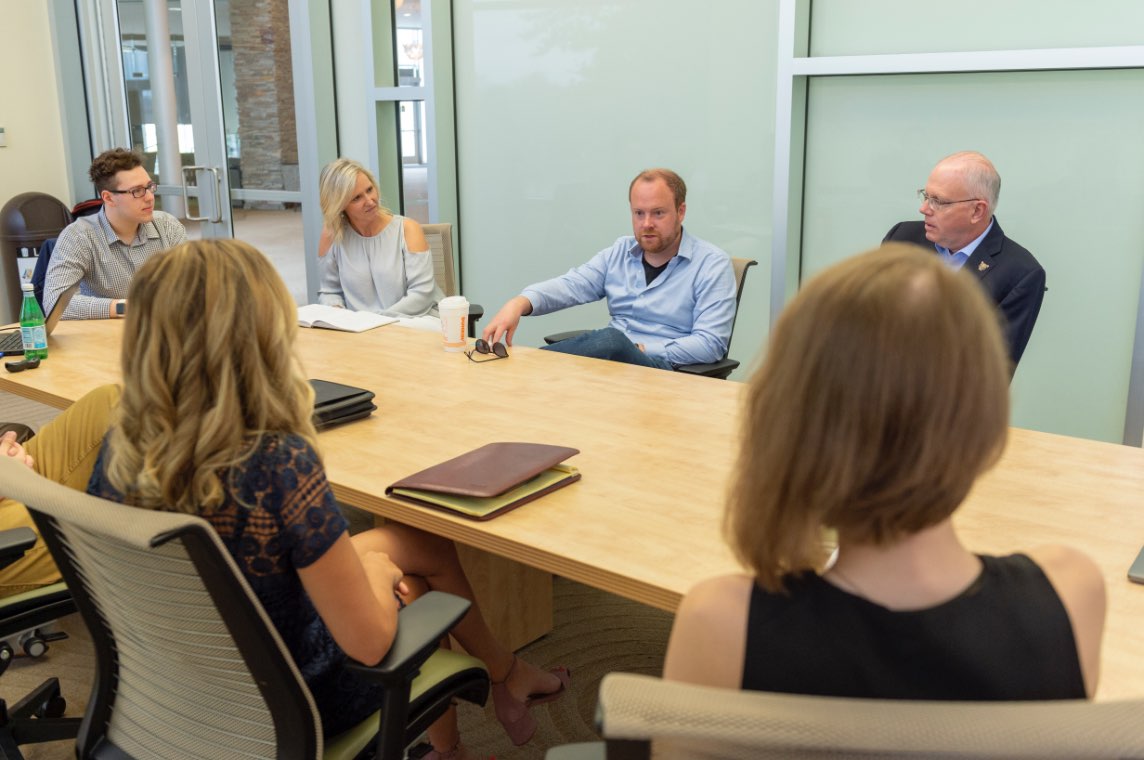
The Gap Year Entrepreneurial Fellowship
The Gap Year Entrepreneurial Fellowship allows students in the School of Individualized Study to take time off from school to focus on personal business ventures while still working toward their degrees. Students in the fellowship receive a $15,000 award to create the time and space needed to build their business, and they have access to mentorship from entrepreneurial experts at RIT.
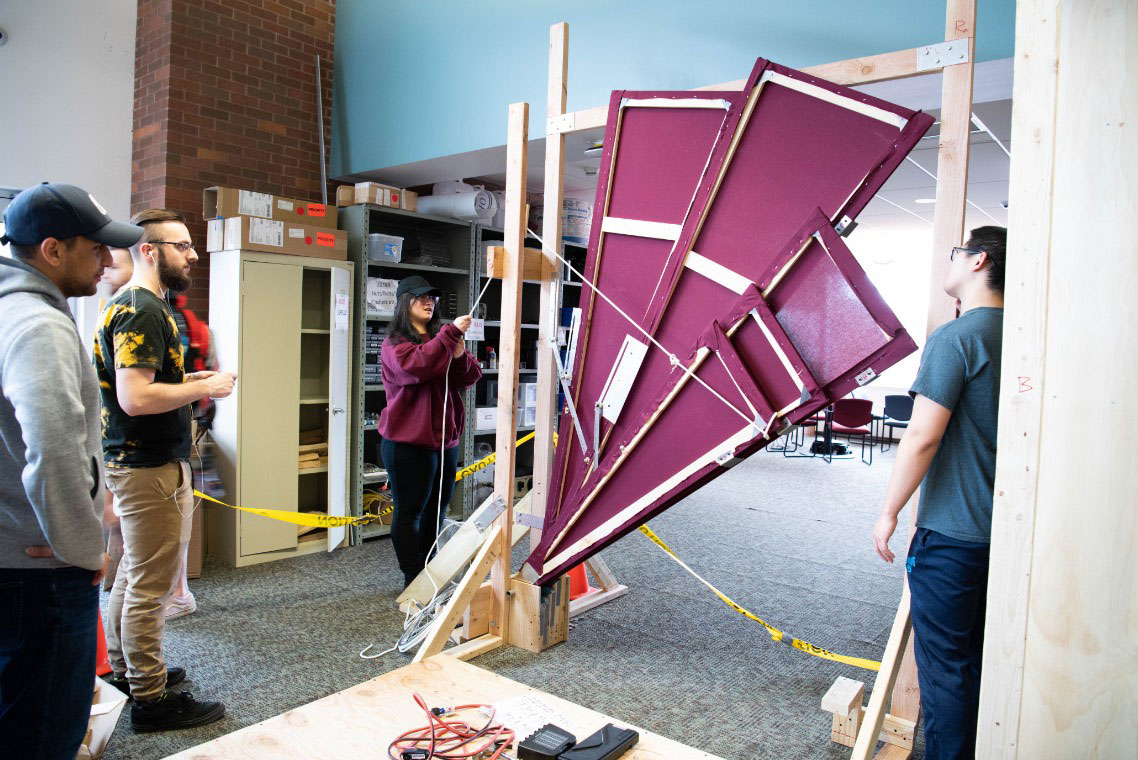
Multidisciplinary Senior Design
Fifth-year engineering students in Kate Gleason College of Engineering participate in Multidisciplinary Senior Design, a two-semester capstone experience in which multidisciplinary teams—made up of engineering majors who collaborate with students from a range of majors, including business, industrial design, biotechnology, imaging science, biology, and more—design a solution to a problem presented by a corporate sponsor. Industry sponsors have included Carnegie Robotics, Harris, the Metropolitan Museum of Art, the National Science Foundation, Wegmans, and Xerox, to name a few.
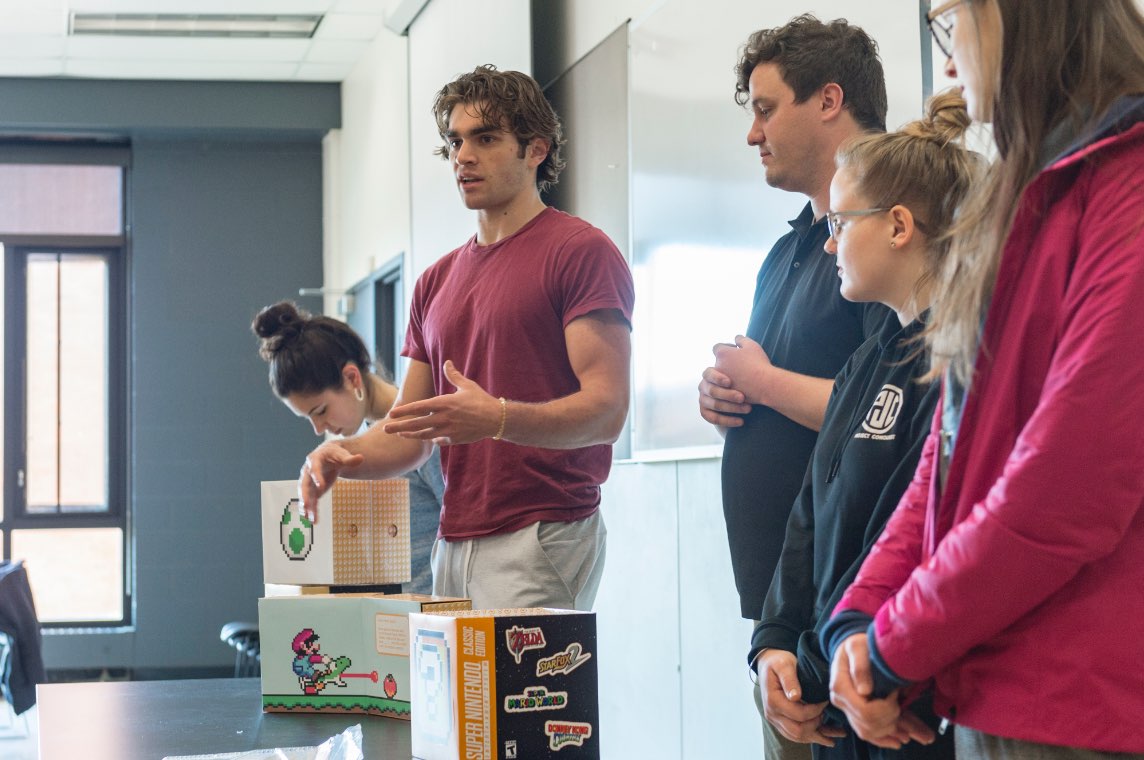
Corporate-Sponsored Packaging Design Courses
Packaging is more than making a product look appealing. It’s about design that maximizes environmental efficiencies and minimizes waste; supports effective transportation and supply chain logistics; enables resourceful storage and display; and captures attention and differentiates a product. RIT’s three-course sequence in packaging development and design enables students from a range of majors to collaborate on the development of packaging solutions for corporate sponsors, which include leaders in packaging innovation: American Packaging, Wegmans Food Markets, Seventh Generation, Colgate-Palmolive, Unilever, ABVI, and Mondelēz.
Interdisciplinary Spaces and Partnerships
Global Cybersecurity Institute
As cybersecurity becomes increasingly threatened day by day, the need for computing and security employees and protective technologies is at an all-time high. RIT’s Global Cybersecurity Institute is a state-of-the-art facility that will become a nexus for cybersecurity knowledge, AI impact, and leadership. The institute will educate and train cybersecurity professionals; develop new cybersecurity and AI-based knowledge for industry, academia, and government; perform systems and network security testing and conduct tabletop exercises for a wide range of partners; and conduct research to build secure systems, software, devices, and technologies of the future. The institute opened in October 2020.
MAGIC Spell Studios
Magic Spell Studio is a digital playground for students to develop and publish digital media—games, apps, films, art installations, and interactives—and grow ideas into products and companies. And, they get to work alongside professionals from film, animation, television, 3D entertainment, gaming, and more. A fully outfitted sound stage and post-production studios further enhance learning and allow faculty to introduce real-world film, animation, and digital media workflows to the classroom. Students learn on the same hardware and software platforms used in industry while honing their technical and creative skills. It’s a fully immersive experience for RIT students.
Genesee Country Village & Museum/RIT Partnership
RIT and Genesee Country Village & Museum are partners in creating opportunities that benefit students, faculty, staff, and the public. The museum is a source of co-ops and internships in its curatorial, marketing, and gallery departments. Students also complete projects and class assignments that provide intensive learning experiences while enhancing the visitor experience at the museum.
Simone Center for Innovation and Entrepreneurship
The Simone Center for Innovation and Entrepreneurship enhances innovation and entrepreneurship activities at RIT, and helps to make students’ product and business ideas a reality. The center offers contests and competitions for startup capital; offers courses and programs in innovation, entrepreneurship, business creativity, and more; hosts a speaker series and an annual entrepreneurship conference; and provides business and innovation coaching to teams of students to guide them through the processes of customer discovery, design thinking, and business model development.
Interdisciplinary Collaborations News
-
April 18, 2024
![a headshot of Alireza Vahid appears on the right with his name, title, and department to the left.]()
Engineering professor becomes part of SMART Hub to improve wireless spectrum accessibility
The wireless spectrum has become very crowded real estate, and work is underway through a new technology research center to improve spectrum access, co-existence, and security.
-
April 15, 2024
![a poster with dark pastel colors is shown with earth in the background and the silhouette of a mans face entering the frame from the left.]()
RIT Singers team up with Madrigalia and RIT exhibitors
The RIT Singers will join members of the local singing group Madrigalia to present a concert dedicated to protecting and sustaining the Earth, and revitalizing nature. Formed in 1975, the chamber choir has collaborated with local and international audiences as well as premiering new works.
-
April 12, 2024
![crowds of people are shown walking through campus with an Imagine RIT banner flying above them.]()
Imagine RIT: Creativity and Innovation Festival set for April 27
Detecting deepfakes, a device to help grocery stores like Wegmans inspect strawberries and reduce waste, and even the economic impact of Taylor Swift are just a few of the nearly 400 exhibits at this year’s Imagine RIT: Creativity and Innovation Festival.
-
April 11, 2024
![the cover of Rochester history is shown]()
Spring issue of ‘Rochester History Journal’ publishes with new digital format
Published by RIT Press, in partnership with the RIT Department of History and the Central Library of Rochester and Monroe County, Rochester History Vol 81, No. 2 (spring 2024) is a peer-reviewed biannual journal that explores local issues within a national and global context.















